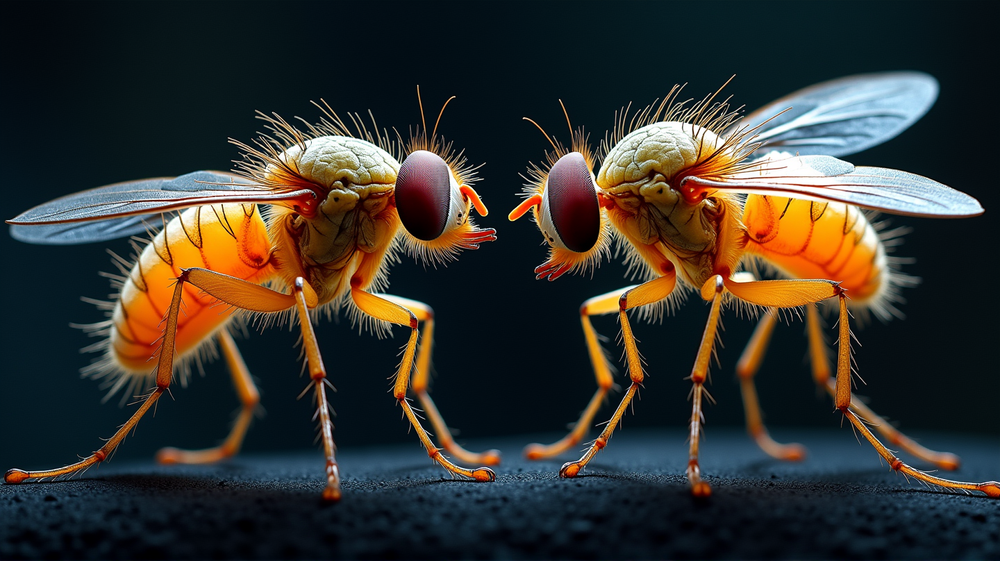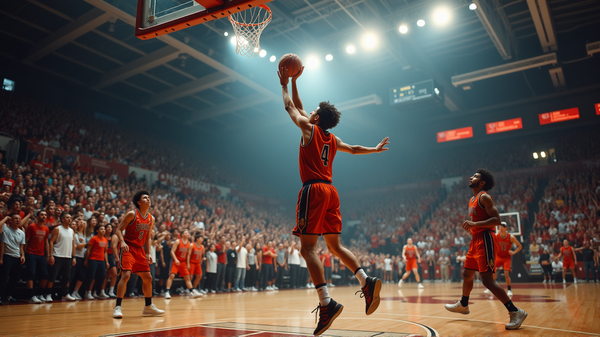How Dopamine Influences Fly Mating Habits and Interest
In the realm of science and discovery, researchers at Boston Children’s Hospital have embarked on a fascinating journey into the mind of the humble fruit fly. Their exploration led to intriguing revelations about dopamine, the neurotransmitter that plays a cardinal role in shaping behaviors, and its surprising influence over even the most primal drives like mating.
A Rollercoaster of Repetition and Interest
Imagine the thrill of a rollercoaster car careening down its tracks for the first time. This embodies the exhilarating rush captured by dopamine within our systems—but what about the repeat rides? Repeated exposure often dulls these initial spikes of excitement, a phenomenon observed broadly across nature. Dopamine is the guiding force behind animals, influencing the persistence or abandonment of engagements, from thrill-seeking rides to mating rituals.
Dopamine and the Dance of the Flies
Delving into the intricate world of fruit flies, the team discovered an unexpected link between dopamine signaling and the insects’ interest in reproductive behavior. While dopamine typically encourages flies to mate, an intriguing twist emerges—successive mating events dull their enthusiasm, especially when stress enters the scene.
Navigating a Path of Mating and Stress
In this landmark study published in Nature Neuroscience, researchers noted that external factors like heat or light disturbances often dissuaded previously mated male flies from mating again. A fascinating observation: by stimulating dopamine neurons in naïve flies before their first mating, similar stress-induced abandonments were recorded—highlighting a natural ebb and flow in motivational drives.
According to The Scientist, the act of silencing dopamine receptors suggested less termination of mating behavior. This poses the question: does dopamine fatigue fly mating behavior?
Deciphering Dopamine’s Influence
Focusing on the intricate dance of neurotransmission, investigators honed in on Copulation Decision Neurons (CDNs)—the decision-makers in the fly’s brain which regulate the mating act. Mutations or interference affecting specific dopamine receptors like D2R led to increased instances of abandoned copulation under stress, highlighting the neurotransmitter’s inhibitory prowess on CDNs.
In an intriguing twist, the research unraveled that artificially boosting dopamine levels in flies did not rekindle their mating interest. This desensitization points to potential variations in receptor response—where the natural ebb and dopamine supply through mating renders it less effective in subsequent acts.
Reflecting on Broader Implications
Dr. Michael Crickmore, a pivotal figure in the study, remarked, “The presence of naturally occurring D2R desensitization showcases an intriguing interplay between biological mechanisms driving behaviors and their potential role in addiction regulation.” Understanding these elements might unlock new windows into human addiction and motivational control.
The research, bridging the simple fruit fly with complex addiction pathways, offers insights not merely into the chemical choreography of mating but into broader dialogs on motivation, gradually piecing together the massive puzzle of behavioral sciences and human psychology.




